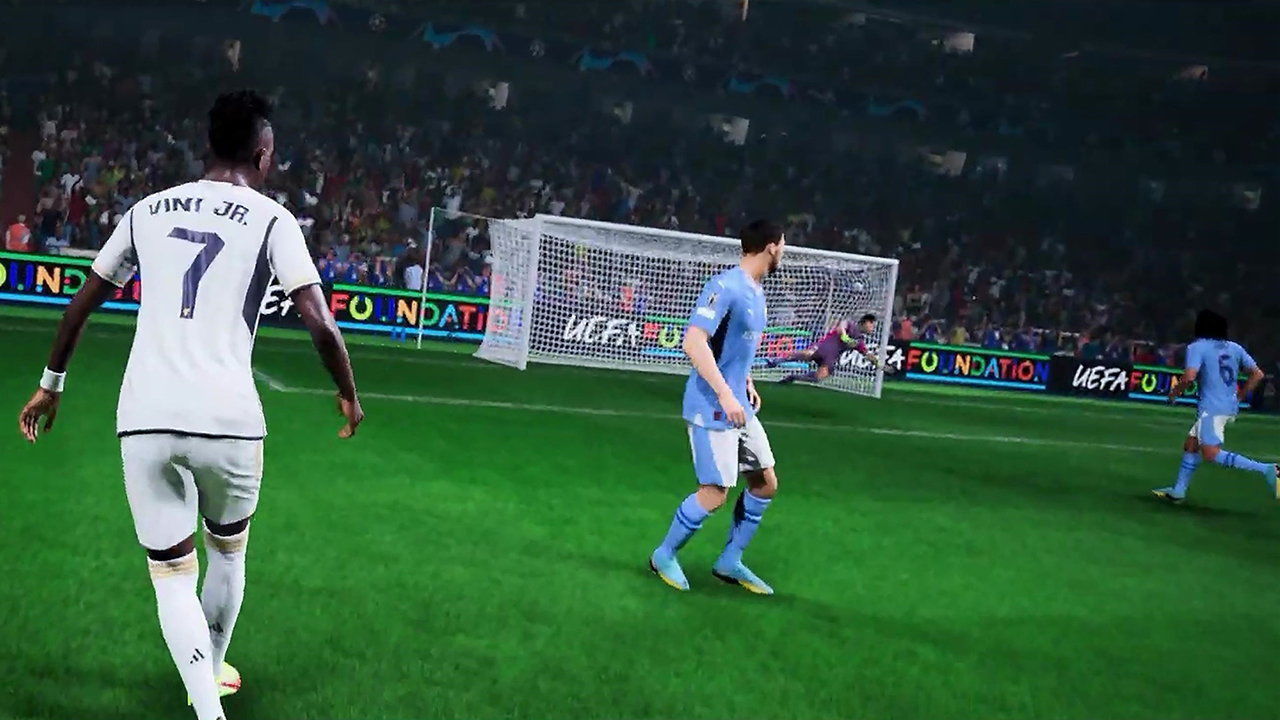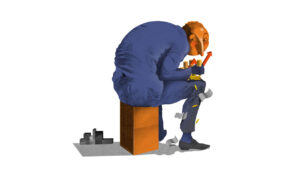
A new football season will begin on September 27th: not the Premier League or La Liga, but the annual update of the world’s favourite football video-game. “FIFA”, as the franchise was known from its pixelated debut in 1993, sells nearly 30m copies a year. In-game spending pushes its annual revenue above $3bn, estimates MoffettNathanson, a firm of analysts, which calculates that the title contributes nearly two-thirds of the profit of its publisher, Electronic Arts (EA). Gaming has few bigger names than “FIFA”.
Yet a year ago EA changed the name of its mega-hit to “EA Sports FC”, after its licensing deal with the Fédération Internationale de Football Association, football’s governing body, fell apart. FIFA had reportedly demanded more than the $150m or so that it had been charging EA each year for the privilege of using its name. EA decided instead to embark on what Andrea Hopelain, who runs its sports-game publishing business, calls “one of the biggest rebrands in entertainment history”.
The gamble seems to have paid off. EA reported in July that revenue from the game was up by “mid-single digits” compared with the previous, FIFA-branded edition. EA Sports had already become a strong brand in its own right, says Ms Hopelain; English referees have had its logo on their sleeves for years. A marketing blitz has made it even stronger: money that would have gone to FIFA has been spent on promotions like sponsoring the Spanish league (now called “LaLiga EA Sports”). Sony and Microsoft also had reason to keep the renamed game visible in their PlayStation and Xbox app stores. It accounts for as much as 10% of spending on the platforms (of which they take a cut), estimates Clay Griffin of MoffettNathanson.
Dropping the FIFA name has brought with it other opportunities. EA has been able to work more closely with partners like Nike and Pepsi, which had been sidelined by FIFA’s relationship with their arch-rivals Adidas and Coca-Cola. EA has had a freer hand to innovate, too. Players can now share video highlights of their footballing heroics with one another within the game and will soon be able to buy merchandise from brands such as Nike to match their avatars’ digital outfits.
Will FIFA hit back? In May Gianni Infantino, its boss, said it was working on a rival game that “obviously, as everything we do, will be the best”. Yet Take-Two, a game-maker rumoured to be involved, poured cold water on the idea last month. Konami, which makes eFootball, a free-to-play game that is big on mobile, is another possible partner.
Any rival will struggle to beat EA. Decades of incumbency have created powerful network effects, as players compete with their friends online. EA has spun a web of licensing deals with footballers, clubs and leagues, some of them exclusive, costing hundreds of millions a year. These factors make sport a winner-takes-most genre in gaming, argues Mr Griffin: EA’s basketball title, “NBA Live”, was crushed by Take-Two’s “NBA 2K” for the same reasons. With or without FIFA, EA’s football game will be hard to tackle. ■
To stay on top of the biggest stories in business and technology, sign up to the Bottom Line, our weekly subscriber-only newsletter.
















